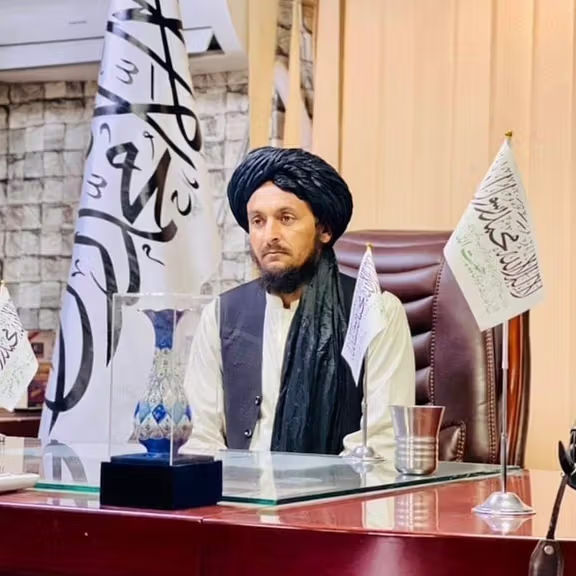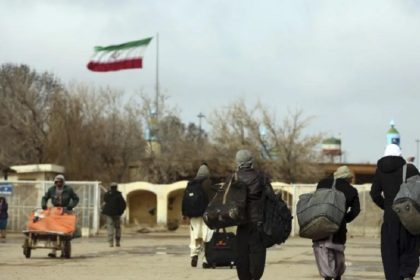RASC News Agency: Reports emerging from within Taliban-controlled Afghanistan indicate that the group’s reclusive supreme leader, Hibatullah Akhundzada, has quietly dismissed Dr. Bashir, a deeply controversial figure who until recently headed the Counterintelligence Directorate of the Taliban’s General Directorate of Intelligence (GDI). While the decision has not been officially confirmed by the group’s tightly controlled propaganda channels, multiple sources with knowledge of internal Taliban affairs suggest that the move is directly linked to mounting accusations of extrajudicial killings, sectarian persecution, and excessive use of force during Bashir’s tenure. Dr. Bashir has long been associated with the Taliban’s brutal campaign against Salafi clerics, many of whom were accused often with little to no evidence of supporting the Islamic State Khorasan Province (ISKP). According to human rights advocates and former government officials, Bashir led a covert campaign of targeted assassinations, particularly in Nangarhar province, where corpses of Salafi scholars and suspected dissidents were found hanging from trees or dumped in irrigation canals, often bearing handwritten notes alleging ties to ISIS.
Critics argue that his removal is a calculated attempt by the Taliban leadership to shield itself from growing criticism both domestically and internationally regarding systematic abuses carried out under his command. Former Afghan National Security Council spokesman Rahmatullah Andar has accused Dr. Bashir of acting on direct orders from Taliban higher-ups, and claimed that Bashir’s removal is nothing more than a public relations stunt aimed at deflecting blame from the Taliban’s top leadership. “He executed dozens of Sunni clerics simply for their theological beliefs,” Andar said. “Labeling them Daesh affiliates was just a pretext. The Taliban used him to silence religious rivals and now they’re discarding him to escape accountability.”
Hailing from Koot district in Nangarhar province, Dr. Bashir is one of the few Taliban officials with both religious and secular education, having graduated from the Faculty of Engineering at Nangarhar University. During the Taliban’s insurgency, he played a prominent role in military operations against ISKP in eastern Afghanistan. However, after the group’s return to power in August 2021, Bashir was appointed provincial intelligence chief in Nangarhar and later elevated to head of counterintelligence nationwide, where he gained notoriety for running what some analysts have described as a “sectarian death squad.” Witness testimonies collected by human rights monitors paint a grim picture of his tenure: summary executions, detentions without trial, and the intimidation of entire religious communities. Under his rule, Salafi madrasas were shut down, scholars harassed or arrested, and many fled to neighboring Pakistan for fear of persecution.
Dr. Bashir also became a polarizing figure within the Taliban due to his fiercely anti-Pakistan rhetoric an unusual stance in a group long believed to operate under Islamabad’s patronage. In one viral video circulated by Taliban-affiliated media, Bashir openly threatened Pakistani forces, warning that any further military incursions across the Durand Line would be met with violent retaliation. His defiance gained him popularity among some Afghanistani nationalists but reportedly deepened tensions within the Taliban’s leadership, many of whom maintain strategic ties with Pakistan’s Inter-Services Intelligence (ISI). In another rare instance of dissent, Bashir publicly criticized the Taliban’s so-called ‘purification commissions’, which had dismissed several members without explanation. His remarks were viewed as insubordination and likely contributed to his political isolation in recent months.
Perhaps the most damning legacy of Dr. Bashir’s time in office was the normalization of extrajudicial violence under the guise of counterterrorism. Local sources report that during his time as intelligence chief in Nangarhar, the discovery of mutilated corpses became a near-daily occurrence. Many bore signs of torture; others were accompanied by crude, handwritten charges like “Daesh supporter” or “enemy of the Emirate.” None were investigated, and no due process was ever observed. This reign of terror was particularly devastating for the Salafi religious community, which has long been viewed with suspicion by the Taliban due to ideological differences. Clerics aligned with Hadith-centric Sunni jurisprudence though staunchly anti-ISKP were rounded up, disappeared, or executed, simply for adhering to a theological school the Taliban sees as a threat to its Deobandi orthodoxy.
Observers say Dr. Bashir’s removal if officially confirmed reflects not a shift toward justice or accountability, but rather a tactical maneuver designed to ease international scrutiny at a time when the Taliban are aggressively lobbying for diplomatic recognition and access to frozen Afghan assets. “This isn’t reform,” said a Kabul-based political analyst, speaking on condition of anonymity. “It’s a smokescreen. Bashir was a tool, and now that he’s become a liability, they’re discarding him.” Despite attempts to rehabilitate their image, the Taliban continue to rule with brute force, sectarian oppression, and absolute intolerance for dissent. Dr. Bashir may no longer head their intelligence directorate, but the machine he built and the ideology that empowered it remains intact.






